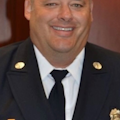According to Vince Lombardi, “Leaders are made, they are not born. They are made by hard effort, which is the price which all of us must pay to achieve any goal that is worthwhile.”
I believe that Lombardi is correct: No one is born a leader.
“Congratulations! You’re the proud parents of a 6-pound-6-ounce baby lieutenant!”
That’s crazy.
Promoting an individual who passed a test but doesn’t have a good work ethic, proper decision-making abilities and that God-given ability that draws people to want to follow them also is crazy.
So, are you trying to find the line in the sand? You know, that fine line between doing what’s right even though nobody is watching and only doing the right thing, so everybody knows? Maybe that line in the sand has become blurry, so it isn’t clear where it is or whether it exists at all.
Earned, not awarded
Promoting through the ranks in the fire service should be a prized achievement that an individual receives from years of hard work. Promotion can’t be a gold medal for doing well on a few tests after spending a couple of weeks studying. When the testing process is complete, leadership must be prepared for a circumstance where, despite an individual having great test scores, it passes on promoting the person this time because of years of being nonproductive on emergency calls and having a poor daily work ethic.
Believe it or not, we are adults, and we should be able to receive constructive criticism in a mature manner. Furthermore, the fire service is a customer-service profession, so maintaining a good/professional standard should never waver.
Then, to encourage a tradition of good leadership, the conversation between those who are in charge of the promotion process and the candidate must continue and be documented. The candidate must be advised as to how and what to improve and helped to develop a plan for success to complete prior to the next promotion process.
Tony Dungy stated, “You’re born with some things inside you that will allow you to lead, but I think you have to take the bull by the horns. You have to want that leadership position, and then there are things you can do to develop that.”
Positioned to succeed
People in the job who are educated from a book standpoint can be well-suited to excel at a structured, point-based interview and a written test. However, when the ashes hit the truck from three blocks away, the mind of a supervisor who lacks practical knowledge often can become clouded; a rational plan of attack might be back on the kitchen table with the fire textbook that the supervisor was reading.
Please don’t get me wrong, I wholeheartedly believe that one must be educated. The number of fire department personnel who have a college degree(s) seems to increase every year. However, I also believe that there must be a system that promotes individuals who are educated but also have a strong working background and an unspoken ability that others see and want to follow.
Most importantly, give that newly promoted individual a path to follow and the resources that are needed to excel along that path. Hopefully, one day, that new officer becomes a successful mentor to the next generation of leadership.
On the other side of the coin, make sure that the promotion is good for that person, that person’s team and the department. Upper management must be strong and mature enough to have that difficult conversation with a new officer: for example, telling that person that a Mohawk isn’t an image that an officer of the department will present—not that a Mohawk is bad, but maintaining a positive/professional appearance must be a goal.
Officer dedication to training
To maintain job proficiency, a firefighter, including ranked firefighters, must maintain yearly in service hours. The simpler days of the hard-working, school-of-hard-knocks firefighters are all but gone: no real safety equipment, very few rules or guidelines. Just show up, do the job for 10-plus years and go home—then, perhaps, die at a young age of cancer or be killed in the line of duty because of a lack of fire behavior knowledge.
The firefighting profession has become very intricate, with all of the different specialties (trench/ rope/high-angle/confined-space rescue, EMT, paramedic, hazmat, etc.). I know that if I’m not training and proficient at my job, I won’t have that involuntary response to certain actions, which might result in the loss of someone’s life.
I’m writing this with the hope that departments will step back and look at themselves to make sure that they are doing the best for “them”—our customers—and not what’s believed to make the individual officer, chief or whoever look good.
Everybody requires training to be proficient at their job, but how much training is needed for an individual to maintain proficiency? That’s an individual’s and a direct supervisor’s decision. Some people might need to run through skills once per year, while others might need the same training multiple times per year. If the crew is deficient, then extra training is warranted, but keep in mind that being out of service because of training doesn’t help the ones who we are paid to help.
Go beyond the basics
Where that line in the sand regarding promotions should be drawn is department-driven, not written down in “Fire Department Leadership for Dummies” or “Screwing up an Emergency Scene, but I Still Got a Trophy.”
Change must happen. It must be more contagious than a virus on a doorknob. However, by promoting bad leaders, we not only hurt the people who we serve, but we also negatively affect the morale and safety of the members who are being led.
Set the expectations high. People will rise to meet the standard.
Assess each individual’s test scores, attendance, work ethic and work history. Talk with their officers.
In other words, step out of your office and do research on each candidate.
Don’t fool yourself into thinking that a person will change a poor work ethic just because the person was promoted and don’t expect change unless the individual is advised of his/her shortcomings.
Remember, promoted individuals represent the chief, the department and the city. Promoting the right candidate should make the chief want to use heavy equipment, strobe lights and 55-gallon drums of fluorescent paint to show everybody the line in the sand that produced this new fire department officer.
About the Author

Michael Carr
Michael Carr is a firefighter/paramedic and dive & tactical medic for the city of Noblesville, IN. He has been a member of the fire service for 28 years. Carr was recognized as Firefighter of the Year by the state of Indiana in 2019. He developed a tactical medic program for the Noblesville/Westfield Emergency Service Unit. Part of the development and training of that team for his fire department was response to an active shooter, which, unfortunately, was tested during a school shooting in May of 2018.
